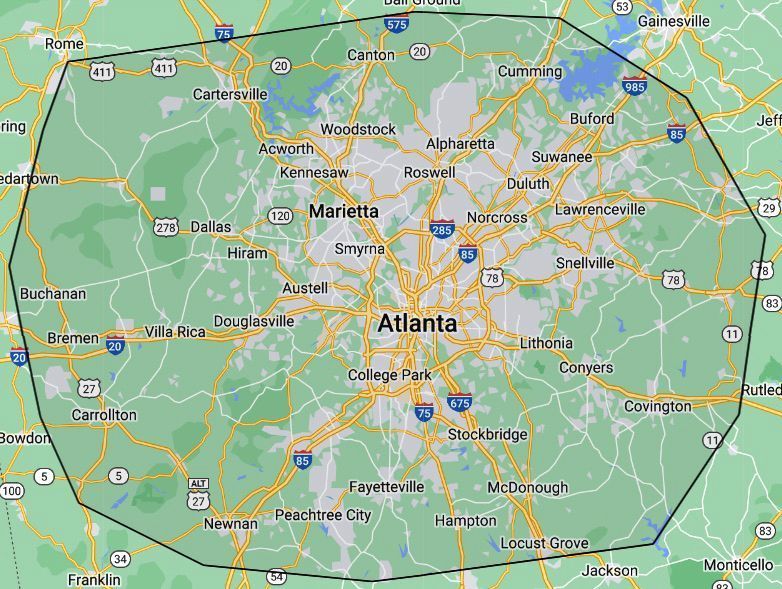
470-397-3814
FAQ'S
Call Us today for all of your electrical needs

470-397-3814
Why Choose AIl Pro Express Electrical?
🔌 Same Day Electrical
🔌 FREE Service Call With Repair
🔌 Emergency Services Available!
🔌 Licensed & Insured
🔌 FREE Warranty On All Electrical Work
🔌 FREE Estimates On Projects
🔌 Residential & Commercial Master Electrician
Our electricians will provide the best service at the best rates while having the ability to take on small to large projects.

FAQ's
Should I replace aluminum wiring in my home?
If your home is equipped with aluminum wiring rather than the standard copper, it requires replacement or updating for several reasons:
Aluminum wiring is less durable than copper, making it prone to hotspots and rust.
Many insurers refuse to cover homes with aluminum wiring, and selling such a home can be challenging.
Modern wiring devices may not be compatible with aluminum wire.
The increased electrical load from electronics usage can cause aluminum wiring to overheat, leading to potential hazards.
Connection points like outlets and light switches are common areas for wiring issues.
Our electricians are skilled in using aluminum-copper (Al/Cu) connectors to repair aluminum wiring. This process is endorsed by the Consumer Product Safety Commission and ensures your home meets safety codes, saving you both time and money.
What is the definition of "short circuit"?
Electricity naturally seeks the easiest route to flow. When a hot wire and a ground wire touch, often due to extreme heat causing them to meld, electricity opts for this simpler path to the ground, resulting in a "short" circuit.
Short circuits can stem from various sources, including damaged outlets or switches, water contacting electrical wires, pests gnawing through wires, power surges, and additional factors.
These electrical anomalies pose risks of shock and structure fires. If you suspect a short circuit in your residence, arrange for an inspection with our certified electricians for peace of mind.
Is it concerning if my light switch feels hot?
While it's normal for a light switch to feel slightly warm after being in the ON position for a while, a hot switch could indicate a potential fire hazard.
Several factors can contribute to a hot light switch:
Overloaded circuit: The switch may be handling more power than it's designed for, requiring an upgrade.
Faulty wiring: Loose or damaged wiring may need replacement by a licensed electrician.
Failing switch: With wear and tear, a switch may need replacement.
High wattage: Extremely bright lights can heat up the switch plate.
If you detect any of these issues, contact our skilled electricians. They'll pinpoint the problem and recommend the best solution for you. Additional signs of electrical trouble include dimming or flickering lights when using major appliances, switches not holding the ON or OFF position, or if your home uses a fuse system instead of circuits.
Why do my circuit breakers keep tripping?
Frequent tripping of circuit breakers is a crucial signal to heed, as it plays a pivotal role in safeguarding your home from electrical hazards. Several reasons may underlie this recurrent occurrence:
Overloaded circuit: When a circuit is burdened with more electricity than it can manage, possibly due to loose or damaged wires, or inadequate distribution of appliances. Running multiple devices simultaneously on the same circuit may prompt tripping.
Short circuit: Occurs when electrical wires suffer damage or looseness, permitting electricity to escape the wire's insulation. This typically triggers a trip when a single appliance is in use, devoid of other connections to the circuit. Identifying whether the short originates from the appliance or the circuit can be determined by testing the appliance on a separate outlet. Short circuits present fire risks, often accompanied by sparks or a burnt odor, necessitating immediate inspection by a qualified electrician before further use.
Ground fault: Arises when electricity strays from its intended path through the wired system and finds an alternative route to the ground. This anomaly may result from damaged wiring, equipment, or exposure to moisture. Ground faults pose a grave risk of electrical shock. The installation of Ground Fault Circuit Interrupter (GFCI) outlets, mandated in kitchens and bathrooms, can mitigate most ground-fault hazards. A proficient electrician can identify and rectify any ground faults within your property.
Should you encounter persistent circuit breaker tripping despite appliance replacement, our licensed electricians are readily available to assist. We'll collaborate with you to diagnose and address the issue, ensuring the ongoing safety of your home.
What should I do if an outlet stops functioning?
When encountering an inactive outlet, the initial step is to test it with a different appliance to discern whether the outlet or the appliance itself is malfunctioning. If the secondary appliance fails to operate, consider these troubleshooting measures to pinpoint the issue and ascertain whether professional assistance is necessary:
Assess if the outlet is equipped with a Ground Fault Circuit Interrupter (GFCI), designed to deactivate in response to electrical overload or moisture detection. Verify that the outlet isn't overwhelmed by multiple appliances and check for any signs of dampness. If the outlet appears intact, attempt to reset it by pressing the reset button.
Inspect other outlets within the vicinity. If neighboring outlets or those on the same circuit are also inactive, it's likely a circuit breaker has tripped in the electrical panel. In such cases, attempt to restore functionality by resetting the breaker.
A recurrently tripping breaker may result from excessive appliance usage, necessitating the disconnection of some devices. If the issue persists, deactivate the circuit and seek professional assistance to investigate potential causes such as a short circuit.
Loose or defective wires connected to the outlet could be the culprit. Signs of compromised wiring include buzzing sounds, odors emanating from the outlet, scorch marks, flickering lights, or excessive heat. Address this issue by securely fastening the wires to the outlet. In severe cases, replacing the outlet entirely may be necessary, particularly in older electrical systems.
Should you encounter persistent outlet issues despite troubleshooting efforts, don't hesitate to enlist the expertise of a qualified electrician for a thorough assessment and resolution.
What is a GFCI outlet, and when is it necessary?
GFCI stands for Ground Fault Circuit Interrupter. This specialized outlet is designed to detect power surges and promptly cut off the electrical flow to prevent potential electric shocks. GFCI outlets are mandated in specific areas of a residence, such as:
Garages
Basements
Crawl spaces
Workshops
Bathrooms
Laundry rooms
Areas prone to wetness or moisture
Any locations with water accessibility or exposure
If you're considering installing GFCI outlets in your home, feel free to reach out to our skilled electricians for assistance.
Home Electrician near me
Serving Metro Atlanta and Surrounding Areas

Atlanta
Canton
Cumming
Cartersville
Woodstock
Buford
Acworth
Alpharetta
Suwanee
Kennesaw
Roswell
Duluth
Marietta
Norcross
Lawrenceville
Dallas
Smyrna
Snellville
Hiram
Smyrna
Austell
Buchanan
Bremen
Villa Rica
Douglasville
Lithonia
College Park
Conyers
Covington
Stockbridge
Carrollton
Fayetteville
McDonough
Newnan
Peachtree City
Hampton
Locust Grove
Electric Contractor near me
Call Us today for all of your electrical needs

470-397-3814

Contact Info
Headquarters
6090 Northbelt Parkway, Suite C, Norcross, GA
470-397-3814
Working Hours
Mon - Sun: 24 Hours